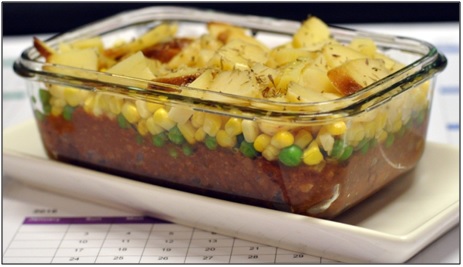Need to know?… understanding the facts can actually improve your health. In Judy’s ‘Building Blocks’ you will find valuable, easy to understand information about water, protein, fats, carbohydrates, vitamins, and minerals helping you to make the best choices to give your body what it needs to be healthy! Whole foods are foods that are unprocessed and unrefined, or processed and refined as little as possible, before being consumed. Every day our body requires raw materials to keep it functioning well. These raw materials are nutrients made up of: water, protein, fats, carbohydrates, vitamins, minerals.
- Water: Our body is almost 2/3 water and it is important in every function of the body, it helps to transport nutrients and waste products in and out of the cells. Water also helps to regulate our body temperature and helps absorb water-soluble vitamins. Every vegetable and fruit is composed of over 70% water in its raw state.
- Carbohydrates: are the main sources of energy for our body. They are needed for the body functions. Carbohydrates are divided into two groups; simple carbohydrates and complex carbohydrates. Fruits are one of the richest sources of simple carbohydrates and vegetables, whole grains, peas and beans (pulses) are rich in complex carbohydrates. Simple carbohydrates are processed quickly while complex ones are both processed and used more slowly.
- Protein: is needed for growth and development of the body. Protein also provides the body with energy and is needed to manufacture hormones, antibodies, enzymes, and tissue. It will help to maintain a proper acid-alkali balance in the body. Protein is broken down into amino acids when it is consumed. By combining different plant proteins we can get complementary proteins which provide the body with adequate amounts of all the essential amino acids.
- Fats: are the storehouses of energy in the body and although we want to reduce fat in our diet, it is essential for normal brain development and it provides energy and supports growth. After the first two years of life the body only requires small amounts of fats. Polyunsaturated and monounsaturated fats are more desirable than saturated fats or products with trans-fatty acids.
- Minerals: The trace minerals in our body are: iron, zinc, copper, selenium, iodine, fluorine and chromium while the major minerals are: sodium, potassium, calcium, phosphorus, magnesium, manganese, sulphur, cobalt and chlorine.
- Vitamin: There are 13 vitamins that the body absolutely needs: Vitamins A, C, D, E, K and the B vitamins (thiamine, riboflavin, niacin, pantothenic acid, biotin, vitamin B-6, vitamin B-12 and folate).
If we choose the best forms of each of these nutrients in our whole foods: fresh vegetables, fruits, nuts, seeds and legumes and eat them in a balanced diet we will make it possible to give our body what it needs to boost our immune systems so we can be healthy and disease free.
Over the next 4 months we will spend more time looking at all of these nutrients.
Shepherd’s Pie ingredients: serves 2-4
Sauté the following ingredients in a frying pan until tender:
- 2 tbsp. coconut oil
- ¼ cup diced onion
- ¼ cup celery thinly sliced
- 2 small cloves of garlic finely minced
- 1 can tomato paste
- Season with sea salt and 1 tsp. of each: chilli powder, curry powder & turmeric
Add 1 package veggie ground-meat and stir until well mixed then put aside (I do not suggest using soya meat products more than once a month but this makes a nice dinner for guests)
Cut 2 large potatoes into quarters and bake until they are tender then slice or mash and put aside.
Or you can use a variety of root vegetables to make this even tastier
I like mixing the following yams, potatoes, turnip and parsnips. Cut them all in small pieces so they will cook evenly and quickly. You will need about ¼ cup of each raw root vegetable to make this recipe.
When I am cooking my veggies I will buy the organic frozen ones for convenience. You will need:
- ½ cup of each: frozen baby peas and frozen corn
- ½ cup frozen peas
To assemble put a layer of the veggie-meat mixture into a glass casserole then layer with the corn & peas and top with a layer of the sliced (or mashed) roasted potatoes.
Cook for 30-45 minutes in a 375F oven. Serve hot with a large salad.
From page 32 of the 90-day Recipe for a Healthy You book



